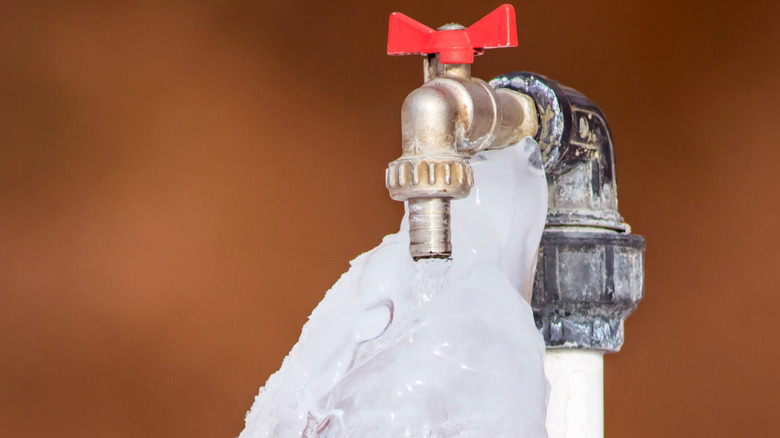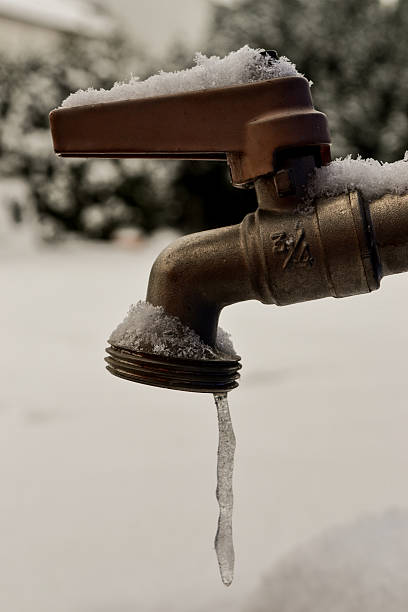Protecting Against Frozen Plumbing: Effective Strategies for Cold Weather
Protecting Against Frozen Plumbing: Effective Strategies for Cold Weather
Blog Article
The content on the next paragraphs in relation to How to Prevent Your Pipes From Freezing is quite motivating. You should look it over.

Cold weather can wreak havoc on your pipes, specifically by freezing pipelines. Right here's how to prevent it from happening and what to do if it does.
Introduction
As temperature levels decrease, the risk of icy pipes rises, possibly resulting in costly repair services and water damage. Comprehending how to avoid frozen pipelines is important for homeowners in chilly environments.
Recognizing Frozen Pipelines
What triggers pipelines to ice up?
Pipelines ice up when revealed to temperature levels below 32 ° F (0 ° C) for extended durations. As water inside the pipelines freezes, it increases, taxing the pipe wall surfaces and possibly creating them to break.
Risks and problems
Frozen pipelines can cause water disruptions, residential property damage, and expensive repair services. Ruptured pipes can flooding homes and cause extensive architectural damage.
Indicators of Frozen Pipes
Determining icy pipes early can stop them from breaking.
Exactly how to determine icy pipelines
Try to find reduced water circulation from taps, uncommon odors or sounds from pipes, and visible frost on revealed pipes.
Avoidance Tips
Shielding at risk pipes
Cover pipes in insulation sleeves or make use of warm tape to shield them from freezing temperatures. Focus on pipes in unheated or exterior areas of the home.
Heating techniques
Keep indoor rooms properly heated, specifically locations with plumbing. Open up closet doors to enable warm air to circulate around pipes under sinks.
Safeguarding Outdoor Pipes
Garden hoses and exterior faucets
Disconnect and drain pipes garden hoses prior to winter season. Mount frost-proof spigots or cover outdoor taps with shielded caps.
What to Do If Your Pipes Freeze
Immediate activities to take
If you think icy pipes, maintain faucets open up to soothe stress as the ice thaws. Use a hairdryer or towels soaked in warm water to thaw pipes slowly.
Long-Term Solutions
Architectural adjustments
Think about rerouting pipelines far from outside walls or unheated locations. Add added insulation to attic rooms, basements, and crawl spaces.
Updating insulation
Invest in premium insulation for pipes, attic rooms, and wall surfaces. Proper insulation aids maintain regular temperatures and lowers the risk of frozen pipes.
Final thought
Protecting against icy pipes needs positive measures and fast actions. By comprehending the causes, indicators, and safety nets, house owners can safeguard their pipes during winter.
Helpful Tips to Prevent Frozen Pipes this Winter
UNDERSTANDING THE BASICS: WHY PIPES FREEZE AND WHY IT’S A PROBLEM
Water freezing inside pipes is common during the winter months, but understanding why pipes freeze, and the potential problems it can cause is crucial in preventing such incidents. This section will delve into the basics of why pipes freeze and the associated problems that may arise.
THE SCIENCE BEHIND FROZEN PIPES
When water reaches freezing temperatures, it undergoes a physical transformation and solidifies into ice. This expansion of water as it freezes is the primary reason pipes can burst. As the water inside the pipe freezes, it expands, creating immense pressure on the walls. If the pressure becomes too great, the pipe can crack or rupture, leading to leaks and water damage.
FACTORS THAT CONTRIBUTE TO PIPE FREEZING
Low Temperatures: Extremely cold weather, especially below freezing, increases the risk of pipes freezing. Uninsulated or Poorly Insulated Pipes: Pipes located in unheated areas, such as basements, crawl spaces, or attics, are more prone to freezing. Insufficient insulation or lack of insulation altogether exacerbates the problem. Exterior Wall Exposure: Pipes running along exterior walls are susceptible to freezing as they encounter colder temperatures outside. Lack of Heating or Temperature Regulation: Inadequate heating or inconsistent temperature control in your home can contribute to frozen pipes. PROBLEMS CAUSED BY FROZEN PIPES
- Pipe Bursting: As mentioned earlier, the expansion of water as it freezes can cause pipes to burst, resulting in significant water damage.
- Water Damage: When pipes burst, it can lead to flooding and water damage to your property, including walls, ceilings, flooring, and personal belongings.
- Structural Damage: Prolonged exposure to water from burst pipes can compromise the structural integrity of your home, leading to costly repairs.
- Mold and Mildew Growth: Excess moisture from water damage can create a favorable environment for mold and mildew growth, posing health risks to occupants.
- Disrupted Water Supply: Frozen pipes can also result in a complete or partial loss of water supply until the issue is resolved.
WHY CERTAIN PIPES ARE MORE PRONE TO FREEZING
- Location: Pipes located in unheated or poorly insulated areas, such as basements, crawl spaces, attics, or exterior walls, are at higher risk of freezing.
- Exterior Pipes: Outdoor pipes, such as those used for irrigation or exposed plumbing, are particularly vulnerable to freezing as they are directly exposed to the elements.
- Supply Lines: Pipes that carry water from the main water supply into your home, including the main water line, are critical to protect as freezing in these lines can affect your entire plumbing system.
- Underground Pipes: Pipes buried underground, such as those connected to sprinkler systems or outdoor faucets, can be susceptible to freezing if not properly insulated.
https://busybusy.com/blog/helpful-tips-to-prevent-frozen-pipes-this-winter/

I'm just very focused on How To Avoid Freezing Pipes and I am assuming you enjoyed the entire page. Be sure to set aside a second to share this article if you enjoyed it. I am grateful for being here. Return soon.
Schedule Service Now Report this page